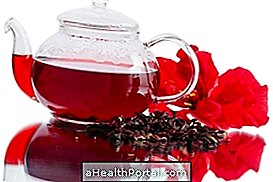Doping in sports is when an athlete uses prohibited substances to stimulate muscle growth and improve overall performance and endurance, achieving better results in the sport he or she practices.
During sporting competitions such as the Olympics and World Cup, athletes must undergo anti-doping tests, which assess whether there are banned substances in the body. In case of positive test for doping, the athlete is eliminated from the competition.

Why doping helps athletes
Using chemicals that are not natural to the body helps to improve the overall performance of the athlete, bringing advantages such as:
- Increase concentration and improve physical capacity;
- Relieve exercise pains and decrease muscle fatigue;
- Increase muscle mass and strength;
- Relax the body and improve concentration;
- Help you lose weight fast.
- Thus, taking these substances causes the athlete to have faster and better results than he or she would only achieve through training and diet, which is why they are banned in sports.
However, even with the ban, many athletes usually use these substances 3 to 6 months before the official competition during their workouts to increase their success, then suspending their use to give the body time to eliminate the substances and the examination antidoping give negative.
When and what tests are done
To assess the presence of doping, athletes should have blood and urine tests before, during, or after competition. In general, tournament winners must take the exams to prove they have not used prohibited substances.
In addition, the exams can also be done outside the competition period and without notice, being the athletes chosen by lot.
Most used substances
The most used substances during doping are:
- Erythropoietin (EPO): helps increase cells that carry oxygen in the blood, improving performance;
- Furosemide : potent diuretic that helps to decrease weight fast, used mainly by fighting athletes with weight categories. It also helps to dilute and hide other forbidden substances in the urine;
- Energetic: increase the attention and the disposition, diminishing the sensation of fatigue;
- Anabolic: hormones used to increase strength and muscle mass.
In addition, athletes and their team receive a list of recommendations and medications that can not be used during training because they contain substances considered illegal in the sport.
Thus, one must be aware even during treatments of common diseases like colds and high cholesterol, and skin problems, because even without the intention of doping, the athlete can be eliminated from the competition.
Here are the protein supplements that are allowed and that help increase muscle mass:
- How to Take Whey Protein to Gain Muscle Mass
- How to Take Creatine to Increase Muscles























